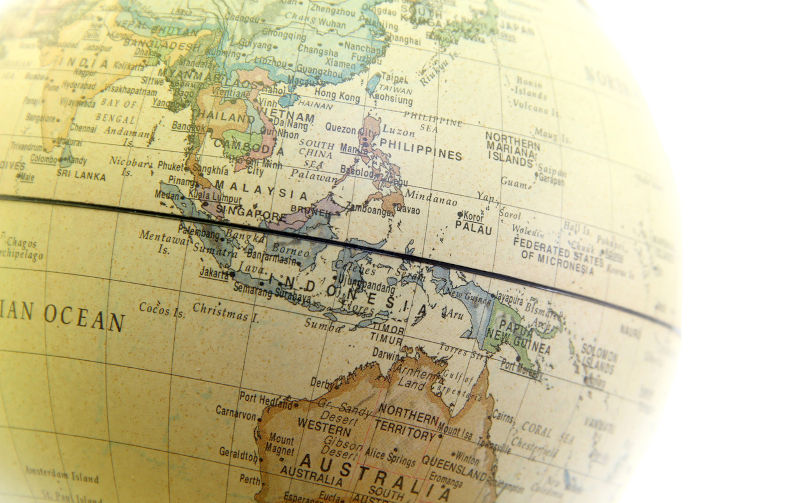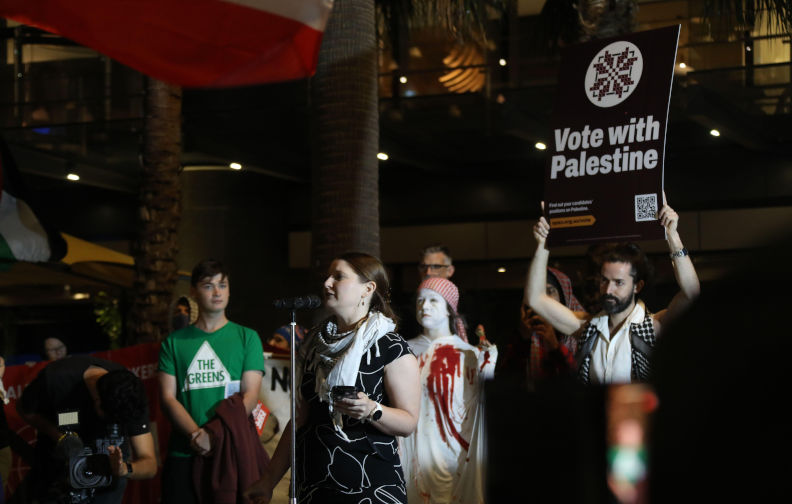
14 May 2025
Australia’s misunderstanding of the Asian Century politics
In October 2012, Prime Minister Julia Gillard released a white paper titled Australia in the Asian Century.

14 May 2025
Bowen confirmed as climate and energy minister, Watt gets environment
Chris Bowen has been confirmed as climate and energy minister in the new Albanese Government, while Murray Watt has been appointed minister for the environment and water as part of a reshuffle announced on Monday.

14 May 2025
After the 2025 election: Energy transition and restoration of Australian growth
An historic election Australia has had insecure governments looking over their shoulders at political threat for one and a half decades. None of the Gillard, Abbott, Turnbull, Morrison and first term Albanese Governments had substantial majorities in the House of Representatives. None ever stood so high in electoral standing that it felt able to take the risk of implementing policy reform in the public interest that could be distorted for their opposition’s political benefit. None had a chance to develop policies in the national interest that take years to mature and to win broadly based electoral support.

Israel's war against Gaza
Media coverage of the war in Gaza since October 2023 has spread a series of lies propagated by Israel and the United States. This publication presents information, analysis, clarification, views and perspectives largely unavailable in mainstream media in Australia and elsewhere.
Download the PDF
14 May 2025
The US war on science
Sadly, largely due to the media’s lack of interest in science and the drop in the number of journalists able to cover such a round, one of the most important stories about science — the Trump destruction of science — is largely being neglected.

14 May 2025
Samah Sabawi – Cactus Pear for My Beloved
This 2024 Penguin publication is a highly personal account of the history of Palestinian dispossession.

14 May 2025
An open letter to The Greens
On election night, I sat glued to the TV, hanging on Antony Green's every word. All I wanted was the defeat of the Liberals and huge gains for the Greens.

14 May 2025
What should Labor do with its majority?
The defining tension of Labor’s second term in office will be over how to interpret the landslide victory.

13 May 2025
Politics courting religion: Religion courting politics
An open letter to the Coalition leadership There has been a growing trend for Conservative politics in the US and in Australia to double down on support from conservative expressions of Christian religious faith. These religious views are not consistent with the values of most Australians, they are divisive. They do not represent the views of those with faith, like me, who find them at odds with the life and teaching of Jesus.

13 May 2025
Chinese Australians’ rejection of the Liberal Party: Ten moments
The rejection of the Liberal Party by Chinese Australian communities in the election was comprehensive and unambiguous.

13 May 2025
There is no Jewish vote in Australia nor is supporting Israel a vote winner
The election results show that a pro-Israel policy does not garner votes for the Liberal or Labor parties, a trend also evident in the 2022 election.

13 May 2025
Labor stops apologising for its social commitments
Some of the most memorable political speeches made in Australia have been made by politicians who are leaving office.
Latest on Palestine and Israel

14 May 2025
Samah Sabawi – Cactus Pear for My Beloved
This 2024 Penguin publication is a highly personal account of the history of Palestinian dispossession.

12 May 2025
Mark Leibler on his lobbying power
In a speech he delivered back in 2018, Mark Leibler lays out how he exerts influence, from trying to block Bob Carr's efforts on recognition of a Palestinian State to watching ABC correspondent Sophie McNeill in order to change her coverage of the Middle East.

11 May 2025
At the ICJ, only US and Hungary back Israel starving Gaza
Thirty-seven states, the UN and international NGOs all condemned Israel’s denial of aid to the starving people of Gaza at the International Court of Justice in the first week of May.

10 May 2025
'This isn't me': Israeli war and healthcare collapse leave Gaza child unrecognisable
Under a tightening Israeli siege, Palestinian girl Rahaf Ayyad struggles with physical and emotional changes, as her mother fights for answers.

9 May 2025
Aid to Gaza: Moral and political dilemmas for Australia
Amidst preparations for a renewed assault intended to allow permanent Israeli occupation of Gaza, Israel and the United States are also about to establish a mechanism through which humanitarian aid will henceforth be distributed exclusively by private firms protected by the Israeli military.

9 May 2025
Re-elected Albanese Govt must condemn Israel's brutality and cut ties
On 5 May, the Israeli Parliament approved plans to annex and occupy Gaza. These plans have been discussed for months. This is a blatant mission to ethnically cleanse Gaza, advancing Israel’s colonial intentions to take over the territory and rid it of Palestinians.

9 May 2025
Zionist lawfare comes for Australian journalist
The Zionist federation of Australia should be recognised as a duplicitous and malicious actor in Australian society and politics.

8 May 2025
Mainstream media and distorted Palestine reporting
Australia’s mainstream media have ignored and distorted the genocide in Palestine. A recent Australians for Humanity forum, chaired by former SBS newsreader Mary Kostakidis, and featuring Margaret Reynolds, Stuart Rees and Peter Slezak, tackled the issues and discussed what needs to be done.

Support our independent media with your donation
Pearls and Irritations leads the way in raising and analysing vital issues often neglected in mainstream media. Your contribution supports our independence and quality commentary on matters importance to Australia and our region.
DonateLatest on China

13 May 2025
Trump’s USAID cuts only accelerate the West’s miserly convergence with China china, economy, politics, usa
Critics of the Trump administration’s assault on foreign aid warn that it will undermine the United States’ capacity to compete with China.

12 May 2025
Shell-shocked voters of US allies choose stability over disruption
Rather than left- or right-leaning political parties, citizens in Singapore, Australia and Canada chose steady hands to navigate geopolitical turbulence.

10 May 2025
China touts new law as foundation for private sector growth
A week after the passage of a law on China’s private economy, officials said the bill would unleash the potential of the non-state sector.
More from Pearls and Irritations
Latest letters to the editor
Playground antics
Alyssa Aleksanian — Hazelbrook
National day of action needed
Brian Bycroft — Evans Head NSW
Bring back the whip
Bob Pearce — Adelaide SA
Labor 2025: purpose or puppetry?
Chris Young — Surrey Hills, Vic








